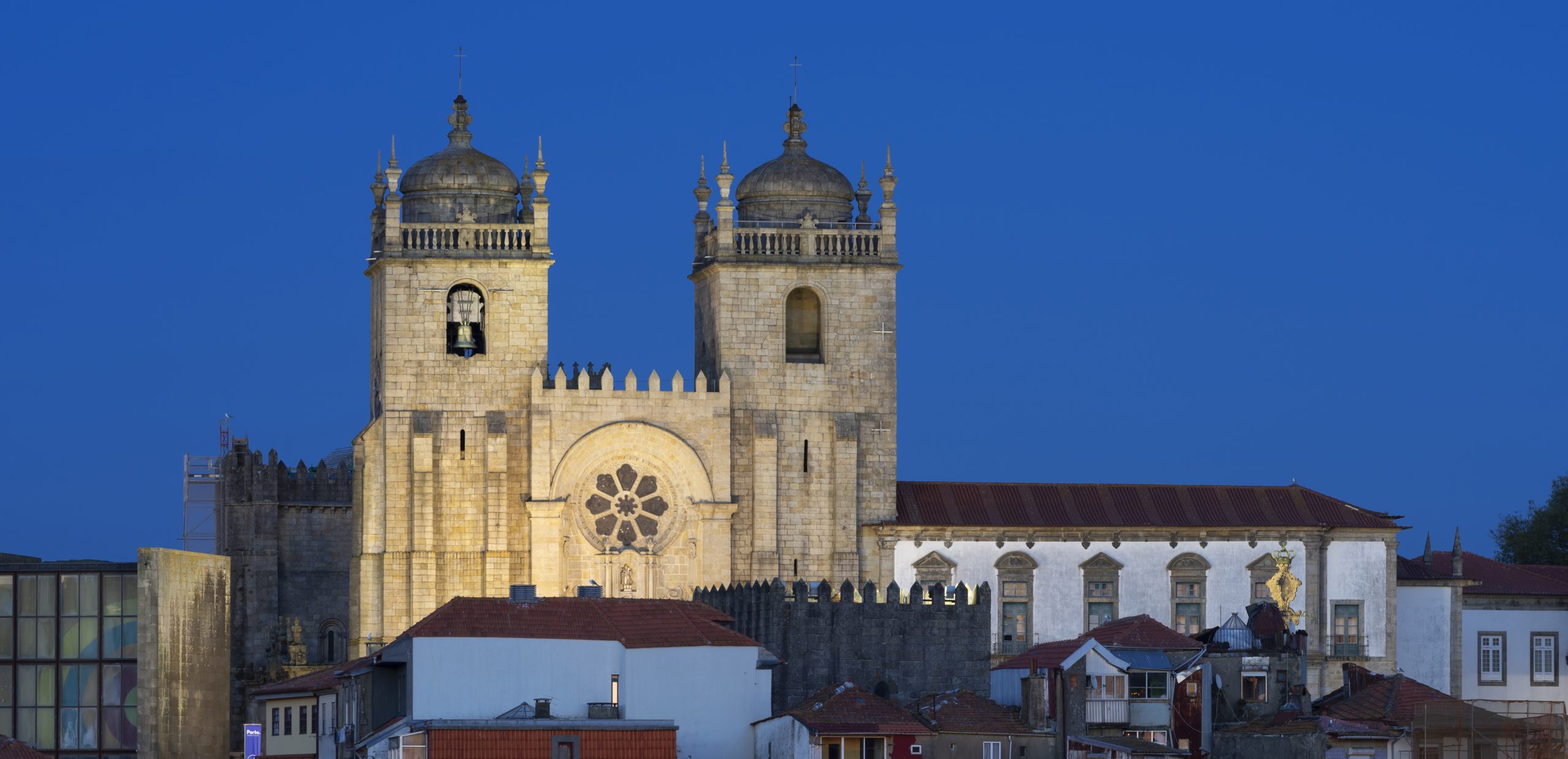Portugal, a country renowned for its stunning landscapes, rich history, and vibrant culture, has become a top destination for digital nomads worldwide. For Nigerians seeking to explore new horizons while maintaining their professional responsibilities, Portugal offers a Digital Nomad Visa, known as the D7 Visa. This article provides an in-depth guide on relocating to Portugal from Nigeria using the nomad visa, detailing the application process, necessary preparations, and what to expect upon arrival.
Understanding the D7 Visa
The D7 Visa, also known as the Passive Income Visa or Retirement Visa, was initially designed for retirees and individuals with stable passive incomes. However, it has evolved to accommodate digital nomads and remote workers who can demonstrate sufficient financial means. This visa allows holders to reside in Portugal for an extended period, typically one year, with the possibility of renewal.
Benefits of the D7 Visa
For Nigerians
- Residency in Schengen Area: The D7 Visa allows for residency in Portugal, which is part of the Schengen Area. This enables visa holders to travel freely within the 26 Schengen countries.
- Quality of Life: Portugal offers a high quality of life, with excellent healthcare, education, and public services. The country is known for its safety, welcoming locals, and beautiful weather.
- Affordable Cost of Living: Compared to other Western European countries, Portugal has a relatively low cost of living, making it an attractive option for those on a budget.
- Cultural Richness: From historical sites to modern art scenes, Portugal boasts a rich cultural heritage. Living in Portugal provides ample opportunities to immerse oneself in European culture and history.
- Networking Opportunities: Portugal has a growing community of digital nomads and expatriates. This creates a vibrant environment for networking, collaboration, and professional growth.
Preparing for the Move
Financial Requirements
To qualify for the D7 Visa, applicants must demonstrate sufficient income to support themselves during their stay in Portugal. This income can come from remote work, pensions, rental income, dividends, or other passive income sources. The minimum income requirement is based on the Portuguese minimum wage, which is approximately €760 per month as of 2024. However, it’s recommended to demonstrate higher earnings to increase the chances of approval and ensure a comfortable lifestyle.
Documentation and Application Process
- Valid Passport: Ensure your Nigerian passport is valid for at least six months beyond your intended stay in Portugal.
- Proof of Income: Provide bank statements, employment contracts, pension statements, or other documents proving a stable and sufficient income.
- Health Insurance: Obtain comprehensive health insurance that covers medical expenses in Portugal. This is a mandatory requirement for the visa application.
- Accommodation Proof: Show evidence of accommodation in Portugal, such as a rental agreement or property purchase.
- Criminal Record Certificate: Obtain a police clearance certificate from Nigerian authorities to demonstrate a clean criminal record.
- Application Form: Complete the visa application form available on the Portuguese consulate’s website.
Additional Preparations
- Language Learning: While many Portuguese people speak English, learning basic Portuguese can enhance your experience and integration.
- Cultural Research: Familiarize yourself with Portuguese customs, traditions, and social norms to ease your transition.
- Networking: Join online forums and social media groups for expatriates and digital nomads in Portugal to build connections and seek advice.
Application Process for the D7 Visa
The D7 Visa application process involves several steps, including gathering documentation, submitting the application, and attending an interview. Here is a detailed breakdown:
- Gather Necessary Documents
- Passport: Ensure it is valid and has at least two blank pages.
- Visa Application Form: Download and complete the form from the Portuguese consulate’s website.
- Passport Photos: Provide two recent passport-sized photographs.
- Proof of Income: Submit bank statements, salary slips, pension documents, or other evidence of income.
- Health Insurance: Obtain a policy covering your stay in Portugal.
- Accommodation Proof: Rental agreement, property deed, or a letter of invitation from a host in Portugal.
- Criminal Record Certificate: Obtain from Nigerian authorities and have it translated into Portuguese if required.
- Cover Letter: Write a letter explaining your reasons for moving to Portugal, your financial situation, and your plans while in the country.
2. Submit Application
- Visit the Portuguese consulate in Nigeria to submit your application. Ensure you have all original documents and photocopies.
- Pay the visa application fee, which varies but is generally around €90.
- Schedule an appointment for the submission if required by the consulate.
3. Attend Visa Interview
- Be prepared to discuss your reasons for moving to Portugal, your financial stability, and your plans while living in the country.
- Answer questions confidently and provide any additional information requested by the consulate officer.
4. Wait for Processing
- The processing time for the D7 Visa can take several weeks to a few months. Be patient and follow up with the consulate if necessary.
5. Receive Visa and Travel to Portugal
- Once your visa is approved, you will receive a visa sticker in your passport.
- Book your flight and prepare for your move to Portugal.
- Upon arrival, you will need to register with the local authorities and obtain a residence permit.
Settling in Portugal
Finding Accommodation
- Temporary Housing: Initially, consider short-term rental options such as Airbnb or serviced apartments to give you time to explore and find a suitable long-term residence. Here are a few websites for finding temporary housing in Portugal:
- Airbnb: airbnb.com
- Booking.com: booking.com
- Homelike: thehomelike.com
- Spotahome: spotahome.com
- Nestpick: nestpick.com
- Uniplaces: uniplaces.com
- Vrbo: vrbo.com
- Flatio: flatio.com
These platforms offer a range of options from short-term rentals to service apartments, making it easier to find suitable temporary housing while you settle in Portugal.
2. Long-term Rentals: Research neighborhoods and find a long-term rental that fits your needs and budget. Websites like Idealista, OLX, and local real estate agencies can be helpful.
3. Buying Property: If you plan to stay long-term, buying property might be a viable option. Consult with a local real estate agent and lawyer to navigate the process.
Registering with Local Authorities
- Register at the Local Parish: Within the first few weeks of your arrival, visit the local parish (freguesia) to register your residence.
- Obtain a Tax Number (NIF): The NIF (Número de Identificação Fiscal) is essential for various transactions, including opening a bank account and signing rental agreements.
- Apply for a Residence Permit: Visit the local SEF (Serviço de Estrangeiros e Fronteiras) office to apply for your residence permit. Bring your visa, proof of address, health insurance, and financial documentation.
Healthcare and Insurance
- Health Insurance: Ensure your health insurance is valid and comprehensive. You may choose to enroll in the public healthcare system (SNS) after obtaining your residence permit.
- Medical Services: Register with a local health center to access medical services. Portugal has a well-regarded healthcare system, both public and private.
Banking and Finances
- Open a Bank Account: Choose a local bank and open an account. You’ll need your NIF, passport, proof of address, and proof of income.
- Managing Finances: Familiarize yourself with the cost of living and manage your finances accordingly. Portugal is generally affordable, but prices can vary by region.
Embracing the Portuguese Lifestyle
Cultural Adaptation
- Learn Portuguese: Enroll in language classes or use online resources to learn Portuguese. Speaking the local language enhances your experience and helps with integration.
- Social Integration: Participate in local events, join clubs or groups, and engage with the community to build relationships and immerse yourself in Portuguese culture.
Work-Life Balance
- Work Environment: Portugal has a growing number of coworking spaces and cafes suitable for remote work. Explore options in your area to find a productive work environment.
- Leisure and Recreation: Take advantage of Portugal’s beautiful landscapes, beaches, and historical sites. Enjoy local cuisine, festivals, and recreational activities.
Legal and Tax Considerations
- Understand Local Laws: Familiarize yourself with local laws and regulations to ensure compliance and avoid legal issues.
- Tax Obligations: Consult with a tax advisor to understand your tax obligations in Portugal and Nigeria. Portugal has tax treaties that may benefit expatriates.
Challenges and Considerations
While the D7 Visa offers many benefits, there are challenges and considerations to keep in mind:
- Bureaucracy: Navigating Portuguese bureaucracy can be challenging. Patience and persistence are key, and seeking assistance from local professionals can help.
- Language Barrier: While many Portuguese people speak English, learning the language is essential for deeper integration and accessing certain services.
- Cultural Differences: Be prepared for cultural differences and approach them with an open mind. Respect local customs and traditions to build positive relationships.
- Cost of Living: While generally affordable, the cost of living varies by region. Lisbon and Porto are more expensive than rural areas. Budget accordingly and plan your finances.
- Healthcare: Ensure your health insurance is comprehensive and understand how to access medical services. Public healthcare is available, but private insurance may offer additional benefits.
Relocating to Portugal with the D7 Visa offers Nigerian professionals an exciting opportunity to experience a new culture, enhance their career, and enjoy a high quality of life. The application process requires careful preparation and patience, but the benefits are substantial. By understanding the requirements, gathering necessary documentation, and embracing the Portuguese lifestyle, digital nomads from Nigeria can successfully navigate their move and thrive in their new environment. Portugal’s welcoming atmosphere, rich cultural heritage, and vibrant digital nomad community make it an ideal destination for those seeking to combine work and adventure in one of Europe’s most beautiful countries.
Location of the Portuguese Embassy in Nigeria
Portuguese Embassy in Abuja
Address: Plot 3655, Orinoco Street, Off Amazon Street, Maitama District, Abuja, Nigeria
Contact Information:
- Phone: +234 9 314 3473
- Email: [email protected]
Office Hours:
- Monday to Friday: 9:00 AM to 5:00 PM
Consular Section: The consular services, including visa applications, are generally handled within the embassy premises. It is advisable to book an appointment before visiting for visa-related services.
Portuguese Honorary Consulate in Lagos
In addition to the embassy in Abuja, there is also an Honorary Consulate in Lagos:
Address: 16B, Onisiwo Road (Formerly Norman Williams Road), Ikoyi, Lagos, Nigeria
Contact Information:
- Phone: +234 1 463 1094
- Email: [email protected]
Office Hours:
- Monday to Friday: 9:00 AM to 3:00 PM
For specific consular services, including visa applications, it is often recommended to contact the embassy in Abuja. However, the Honorary Consulate in Lagos can provide assistance and general information.
Before visiting either the embassy or the consulate, it’s advisable to check their official websites or contact them directly for the most up-to-date information and to confirm office hours or specific requirements.





Leave a Comment